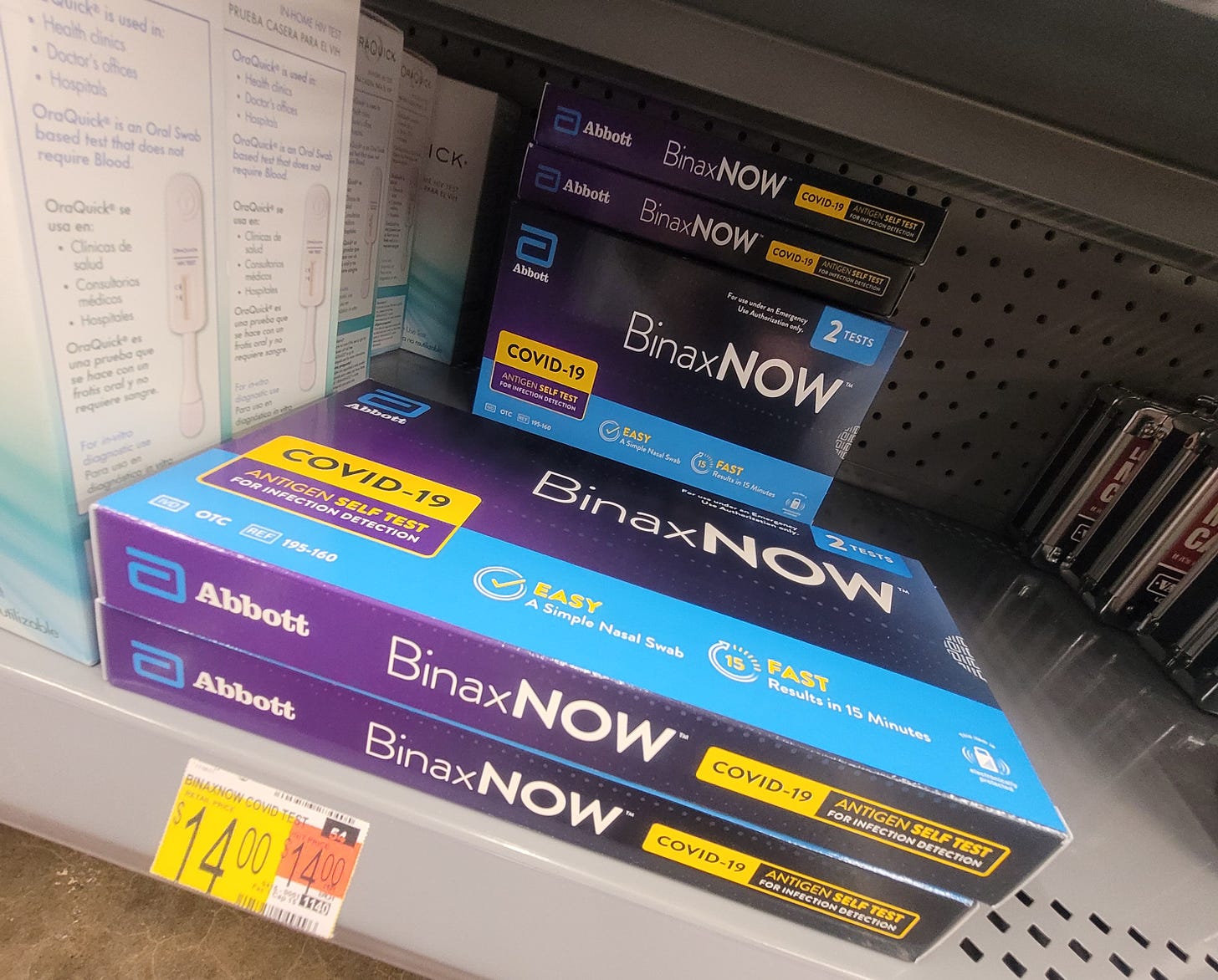Testing Testing 1, 2, 3
Have you tried to take an at-home rapid Covid test recently? The rapid test kits are easy to find in most pharmacies where I live, which is nice because you can get results in about 15 minutes. These rapid tests are really important because the average wait time for other tests can take days in some places. I stopped by my local Walmart to make sure the kits were in stock because there have been an increasing number of stories on how these tests aren’t readily available in other places. Depending on the store at which you’re purchasing the test, the kit can cost upwards of $25 per box. A recent push to get the kits in Walmart has meant that a two-pack of tests will cost as little as $14:
If your initial reaction is that $7 per test isn’t that bad, consider that you’re generally encouraged to take both tests. The first test is for when you think you may have first been exposed, and the second test is supposed to be a follow-up test 24 hours later. Again, $14 may not be all that bad for one person, but this can get expensive quickly for families wanting to be tested after a social gathering. Imagine the testing expenses if you’re testing yourself every week because you come in close contact with others on a regular basis at work or school. It doesn’t have to be this way.
The price of these tests may not seem like a big deal, but this isn’t how at-home tests are priced in other countries (like the United Kingdom). In those other countries, tests are provided to all citizens at no additional cost, and some of those other countries are also making testing easier by offering to have the kits delivered. If there’s a chance that you may be contagious, there’s no reason to leave your house to pick up a kit! So why are things different here?
Last week, Press Secretary Jen Psaki was asked by a reporter why Americans had to go through hurdles to be tested when citizens of other countries don’t face the same limitations. Her initial response focused on all of the progress that the Biden administration has achieved over the past year and less on actually addressing the question of why other countries are doing more than the US. But then when pressed further, she came across annoyed at the prospect that the current administration could do something be more like other administrations. See for yourself:
Her snarky response wasn’t well-received, but the reporter’s question was legitimate. A number of other countries have been more successful in getting tests into the hands of people who want them and they have also made them more affordable. Why has it been so difficult in the United States to get regular affordable access to testing? In Psaki’s initial response, she noted that 8 tests have been recently approved by their administration. It isn’t that the overseas version of the test is some sort of inferior option. One of the approved tests in the U.S. is also sold overseas under a different brand name but is produced by the leading company in the United States: Abbott Laboratories.
According to a ProPublica investigation, Abbott’s BinaxNOW tests account for around 75% of current U.S. retail sales. Despite the Press Secretary’s claim, there actually aren’t a lot of other options currently available because the FDA has been slow to approve those other over-the-counter tests. Even though they may be approved, it takes a lot of time to ramp up production to a level that can be distributed across the entire United States, especially with all of the ongoing supply chain issues. Until there’s enough production from other companies, Abbott has been able to corner the U.S. market for at-home testing kits:

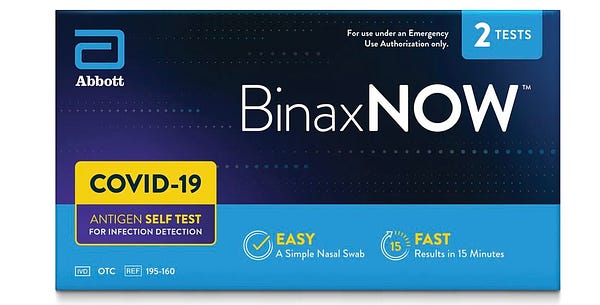
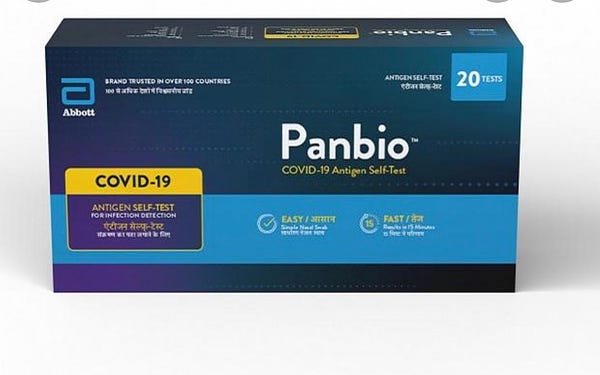
This isn’t the only instance where Abbott’s behavior resembles that of a monopolist. Over the summer, when vaccine adoption rates were looking promising and the Delta variant hadn’t yet become widespread, Abbott controlled close to 90% of the market for at-home testing kits. A New York Times investigative report at the end of the summer found that workers at one of Abbott’s factories in Maine were instructed to destroy recently created products, only to be subsequently laid off shortly after. Abbott likely could have donated those tests overseas, but instead issued a press release claiming they were being misrepresented by the media. Only a few months later, the CEO discussed the impact of increased competition on an earnings call in October, according to ProPublica:
Abbott CEO Robert Ford said the company anticipated dropping its price to maintain its market share, but wouldn’t if competition didn’t make it necessary.
Two of the key outcomes of monopoly power is that firms restrict output (like destroying acceptable tests) while raising prices to a point that is above the cost of production (as mentioned in the earnings call). Once more companies start producing at-home testing kits, demand for Abbott’s products will fall, which will cause the price of their testing kit to decrease to a price closer to their true cost of production. The component pieces of a self-test kit aren’t exactly complicated, but it takes time to get to a level of production to compete nationally:
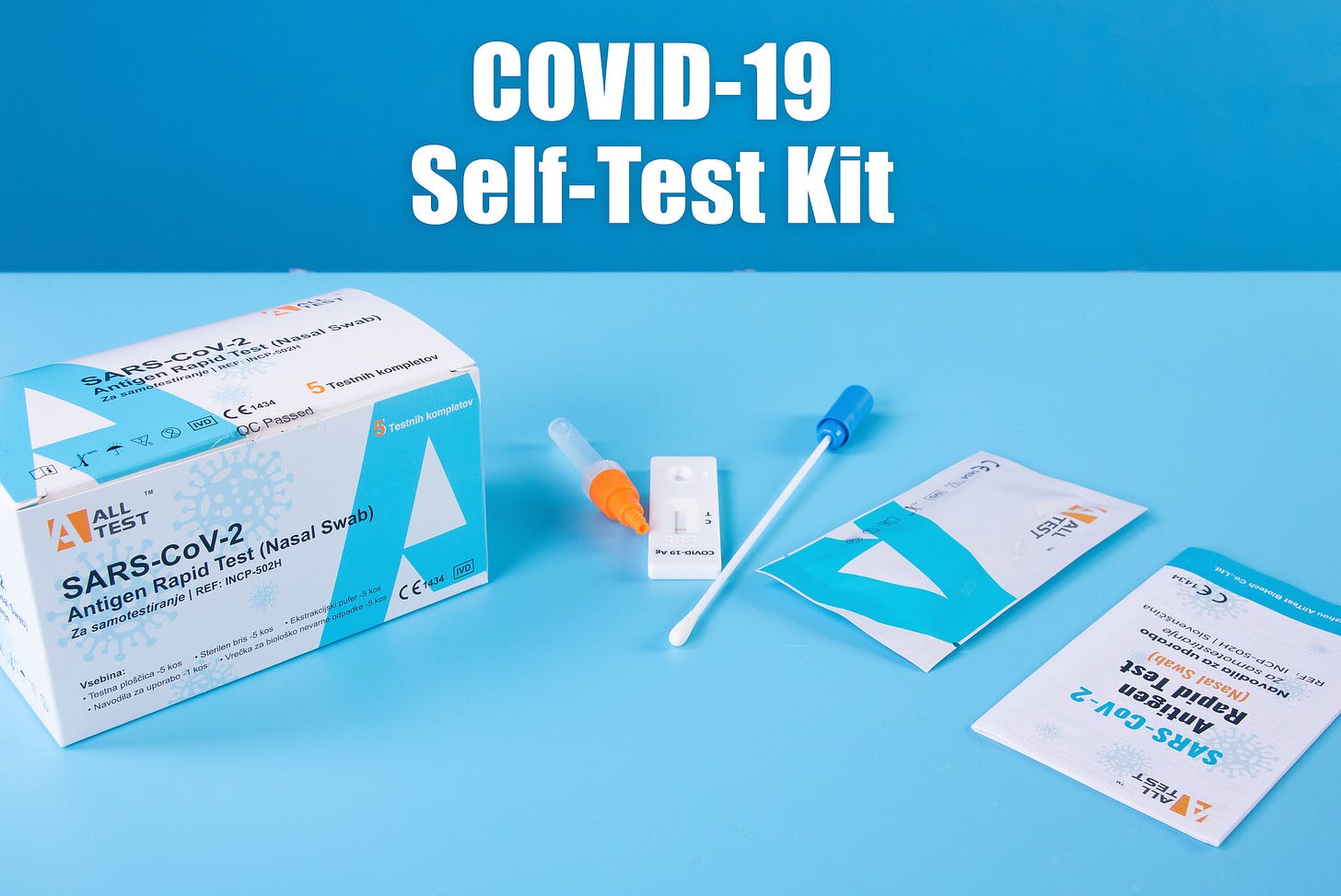
One of the big policy questions facing the Biden administration is why it hasn’t stepped in to negotiate large enough orders that would give them buying (monopsony) power in the market. This monopsony power could force Abbott to sell their kits at a price closer to the cost of production, which would be a huge cost saving to consumers. This was essentially the process for vaccines but that same buying power opportunity has been largely ignored when it comes to testing. One of the administration’s goals has always been to have easy access to testing, but while testing has improved, it really hasn’t been at the pace it needs to be with Omicron-related cases springing up around the country.
Some states and organizations, like universities, have taken it upon themselves to order test kits in large enough quantities that they can provide them cheaply (or at no cost) to their constituents. While the overall story around testing kits has been a bit disheartening, I am optimistic about the future of testing after coming across examples of what is happening on some college campuses in the US. Some universities, like UC San Diego, are offering test kits to their students through campus vending machines for zero dollars:
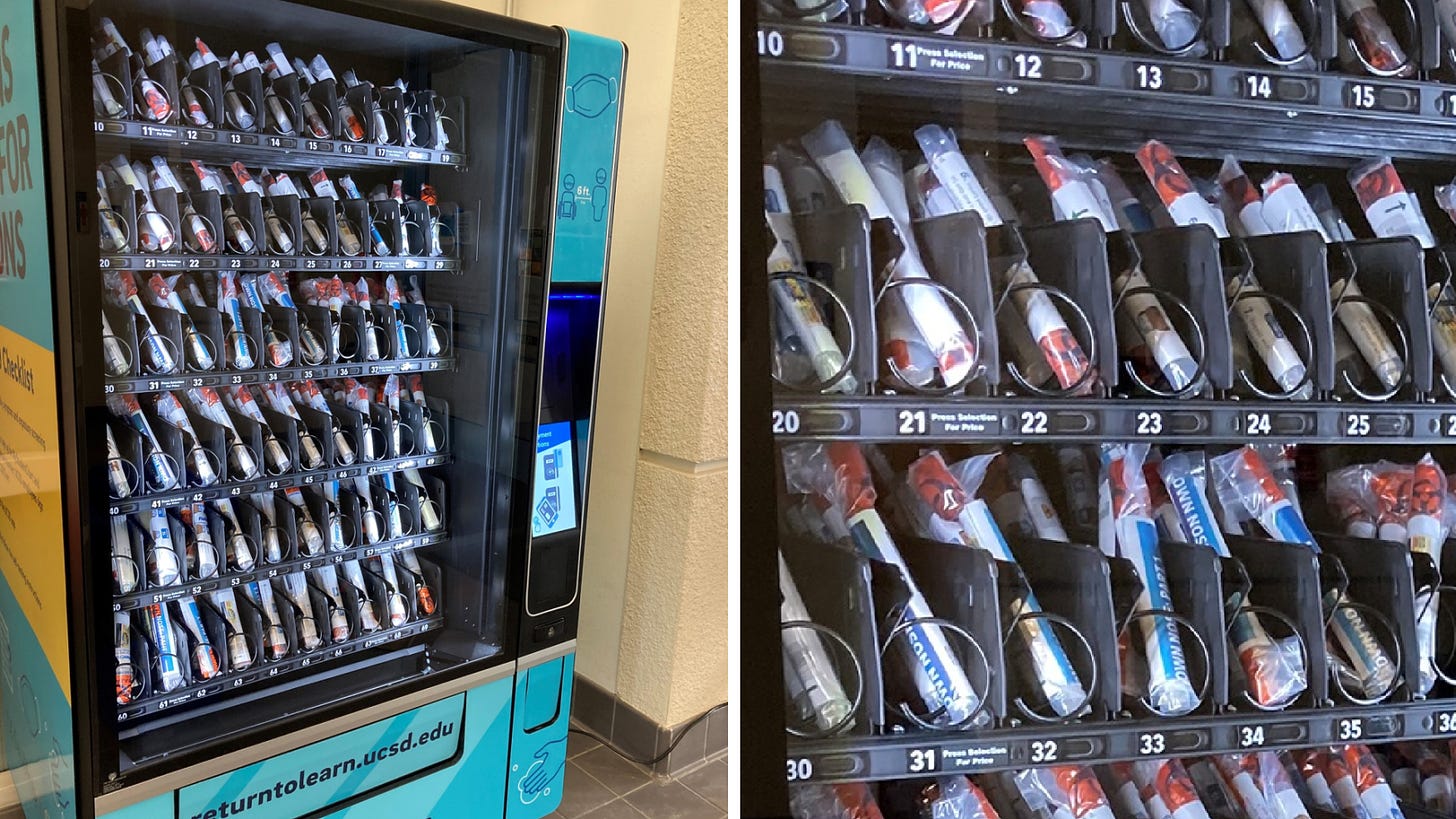
Abbott Laboratories’ net income for the quarter ending September 2021 was $2.1 billion, a 70.45% increase year-over-year [Macrotrends]
There have been 39 rapid tests authorized for home use in the European Union, but the US has only authorized 12 tests [ProPublica]
The US currently conducts approximately 3.47 tests per 1,000 people each day [Our World in Data]
As of December 9, 2021, there have been 682,399,271 reported covid test results [Centers for Disease Control and Prevention]
Approximately 10.47% of the tests administered each day (based on a 7-day average) return a positive result [Our World in Data]




